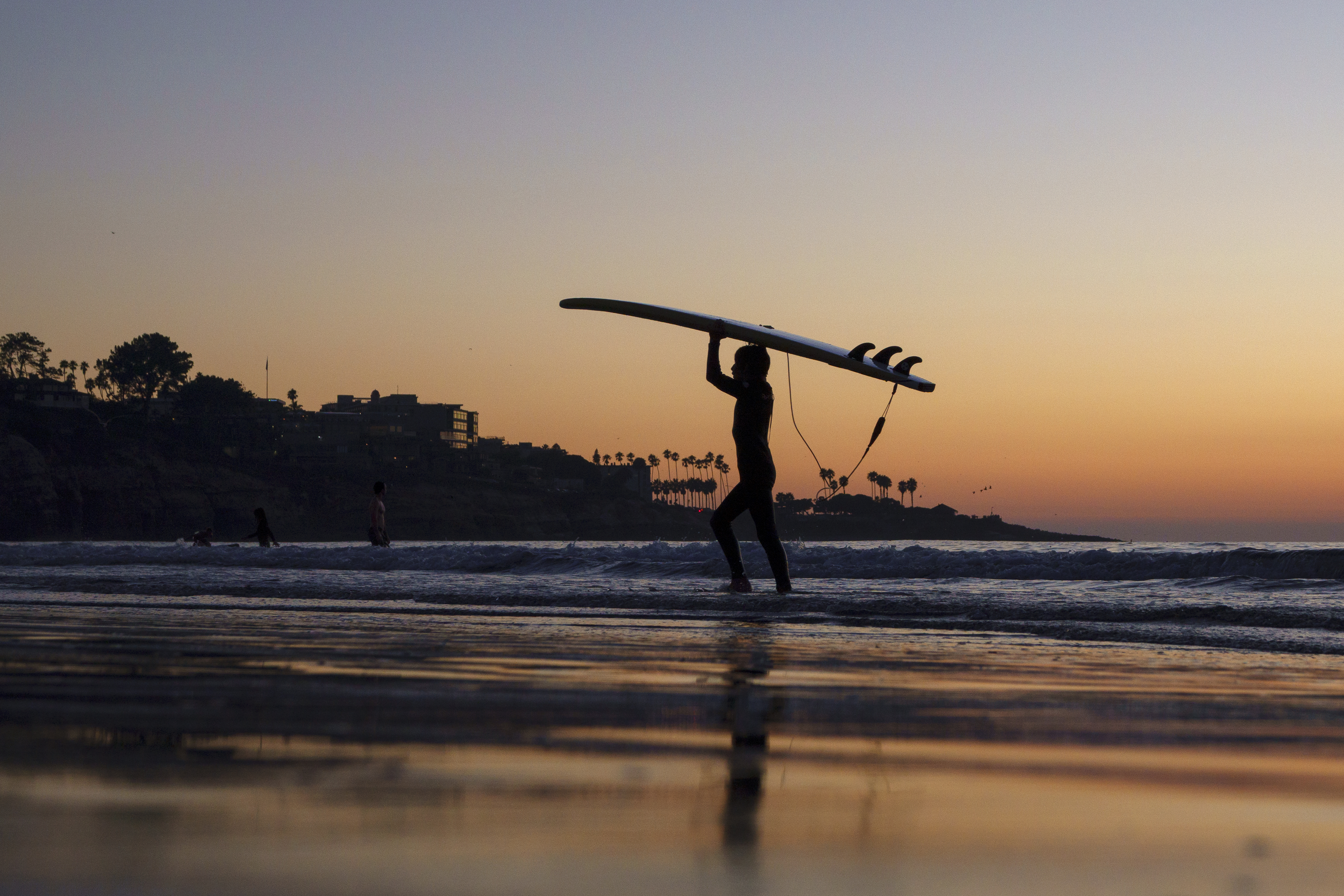Surfing can help veterans ride out wave of depression, anxiety, SDSU study shows

If in doubt, paddle out — the old surfing expression may now be scientifically backed, according to a new study.
Spend any time at the beach in San Diego and you quickly notice that not ALL the surfers are going for every wave. In fact, it seems like some are just out there, bobbing away. What is it they know that the shore-bound don’t?
Jonathan Ossie, a marketing lecturer at SDSU’s Fowler College of Business, a researcher at San Diego State may figured it out: According to his new study, “Wave of Change: Assessing Surf Therapy’s Psychological and Physiological benefits for Military Veterans Using Wearable Technology,” for which he worked with veterans suffering from PTSD, “surf therapy could have a positive impact on both the physiological and psychological effects of PTSD.”
Most victims of PTSD have seen something or some things that are deeply disturbing, which can cause sleep deprivation as well as induce depression and anxiety.
Ossie, who worked with Operation Surf, a California-based nonprofit, spent a week with 27 men and 14 women, all of whom were active-duty military members or veterans, and all of whom were diagnosed with PTSD. The study provided the test subjects with everything from lessons to surfboards, including “adaptive apparatuses (to accommodate physical or psychological limitations) to each participant to encourage maximum engagement.” The groms were also taught some yoga and how to stretch, and took part in “peer-support sessions” (all of which were described as “surf activities”).
“To many people, the power of the ocean has restorative and therapeutic qualities,” Ossie said in a news release announcing the results of the study, which was published by Frontiers in Psychology.
The results after a week in the water were remarkable (quoted matter is italicized):
- Depression: Depression levels dropped by 44% for all participants immediately following the program, with females showing the greatest improvement. Levels rose only slightly after 30 days
- Anxiety: 40% of participants reported the highest classification of anxiety before the program. This fell to 10% immediately after the study but rose slightly to 14% 30 days later
- Sleep: Both deep sleep and REM sleep improved during the program but declined slightly after 30 days
- Heart rate variability: Decreased by 12% during the program, but Ossie noted more data is needed since learning to surf could also increase stress levels
Most startling of all may be the residual effects after the “treatment” ended: While women displayed the most improvement immediately after the study, the men “were more likely to demonstrate continued improvement after 30 days.”
“These outcomes suggest that programs that engage veterans in non-clinical, peer-supported environments may be more approachable and less stigmatizing than traditional care,” said Ossie. “Future research may want to explore how these types of programs can complement traditional care, reduce access barriers and foster long-term engagement in mental health recovery.”
While Ossie observed that the “treatment” was most efficacious to those actively involved in surfing, “participants who continued to practice yoga and stretching, maintained the interpersonal relationships they developed during the program, and continued to surf may also account for post-program improvements.”
Sounds like they need more research. We’ll see you at the beach.





